Springfield is not known for its diversity or its inclusion efforts, but Racheal Dami Odunewu has devoted her professional life to try to change that.
Odunewu started the Ultimate Team Party, an expansive cultural competency training program for individuals who want to better understand other cultures in order to better connect with them. The immersive full-day program includes expert-led sessions, interactive discussions, real-life case studies and role playing.
“The overarching theme is, ‘How do we gain knowledge and understanding about people who are different than us so we can better interact and communicate with them?'” Odunewu said.
As companies operate on a global landscape and co-working teams span across diverse cultures, today's professional world is more connected than ever. The changing landscape is forcing businesses — from mom-and-pop shops to Fortune 500 companies — to contemplate ways to embrace different cultures so people of different backgrounds can flourish together in a working environment.
To succeed in the evolving business landscape, many companies are pushing diversity, equity and inclusion programs that aim to evoke the full participation of a workforce. Odunewu's program aims to be the professional bridge that sets Springfield employers on paths to cultural competency.
“My dream for southwest Missouri is to say we have leading cultural competency organizations right here,” Odunewu said. “If we can demonstrate that, the rest of the nation is going to want what we have.”
8 hours to make cultural shifts
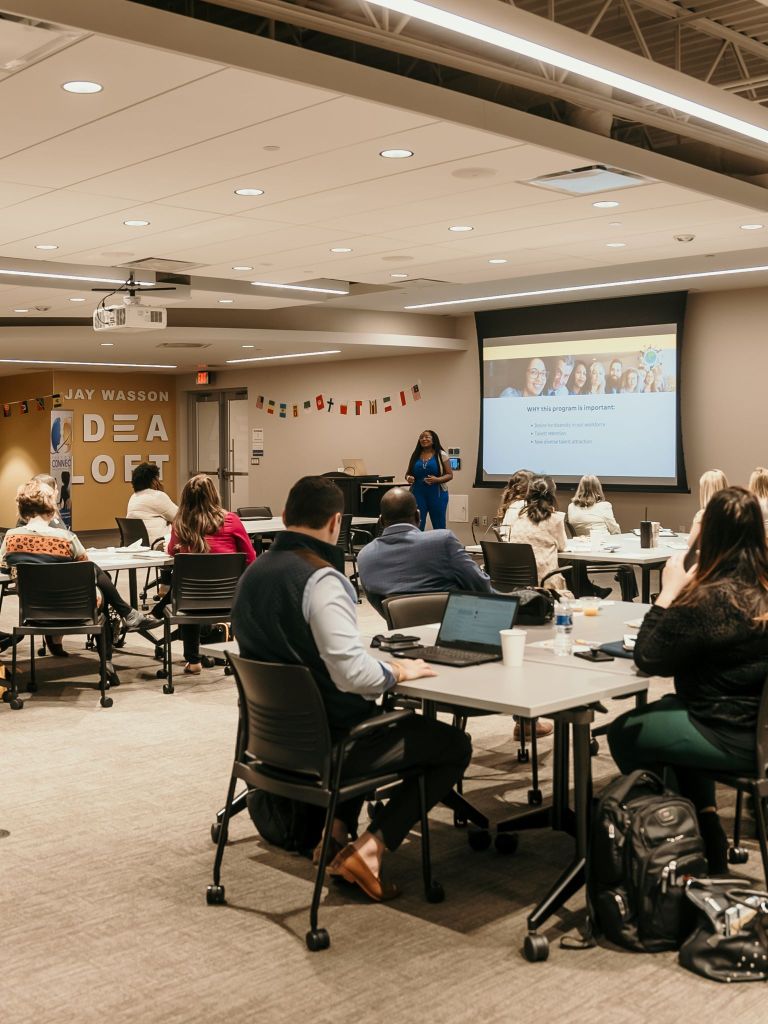
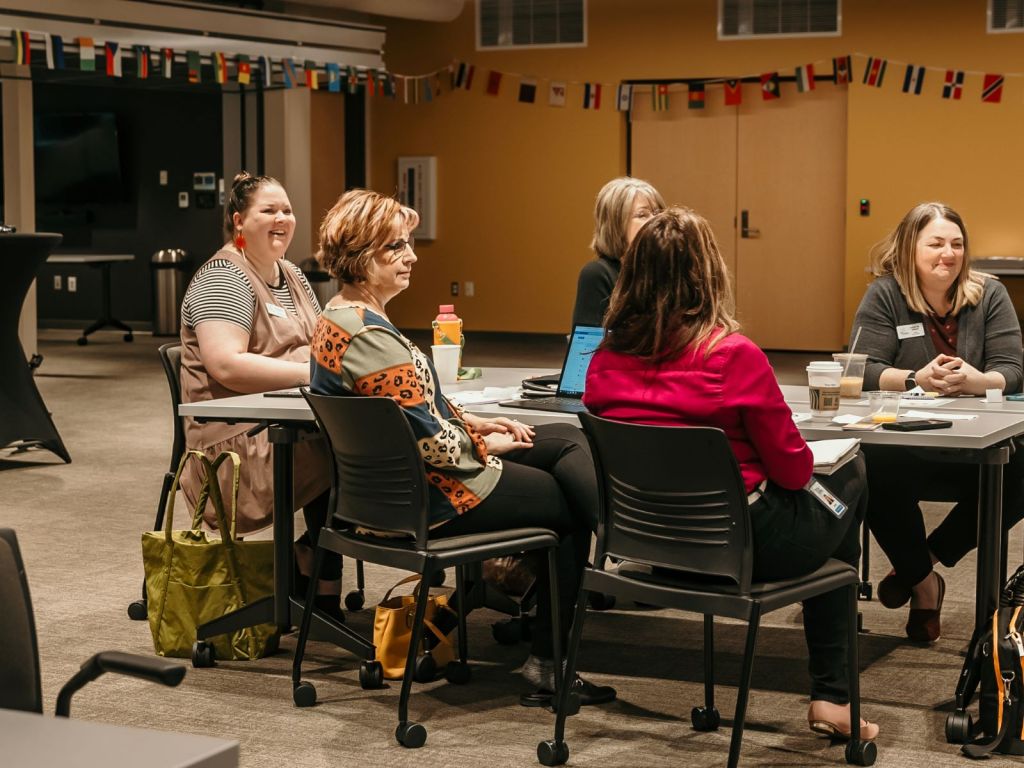

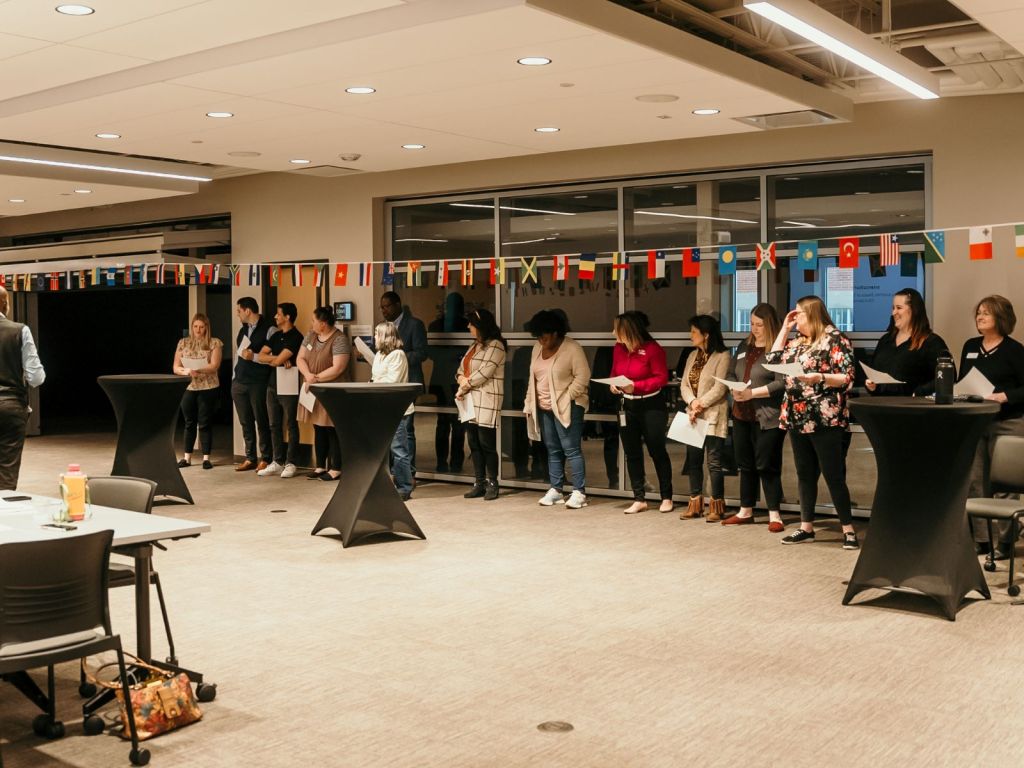

The Ultimate Party is broken down by subject, Odunewu said. The racial and ethnic component lasts about three hours and it's infused with a lot of role playing. At the start, participants pick a country or region and research its cultural norms, like eye contact, greetings, and the do's and don'ts of business etiquette.
One of the main resources for this section is the Cultural Atlas, an educational website with extensive information on a diverse selection of cultural backgrounds.
Nancy Yoon, chief medical officer at the Springfield Greene-County Health Department, picked Nepal when she took the training. She said she found it remarkable that in the South Asian country it was common to openly discuss how much money you make.
“It's just interesting how things can be completely normal in one culture and then completely rude in another,” Yoon said.
It's insights like those that Odunewu hopes to continue to foster through her training course. Lindsay Bauer, Director of People and Culture at Keep Supply, said the class was “eye-opening.”
“As a people professional, it drove home for me the need that we do everything we can as an organization to make sure that inclusion is a number one priority,” Bauer said. “There are too many conversations not happening because people aren’t comfortable having them.”
Jodi Childress Bowman, human resources manager at Cintas Corporation, picked Hungary to research when she took the class in March, she said.
“We have an employee here from Hungary and I've always thought she was fascinating,” Bowman said. “But I didn't know much about the culture.”
Understanding helps in a job seeker's market
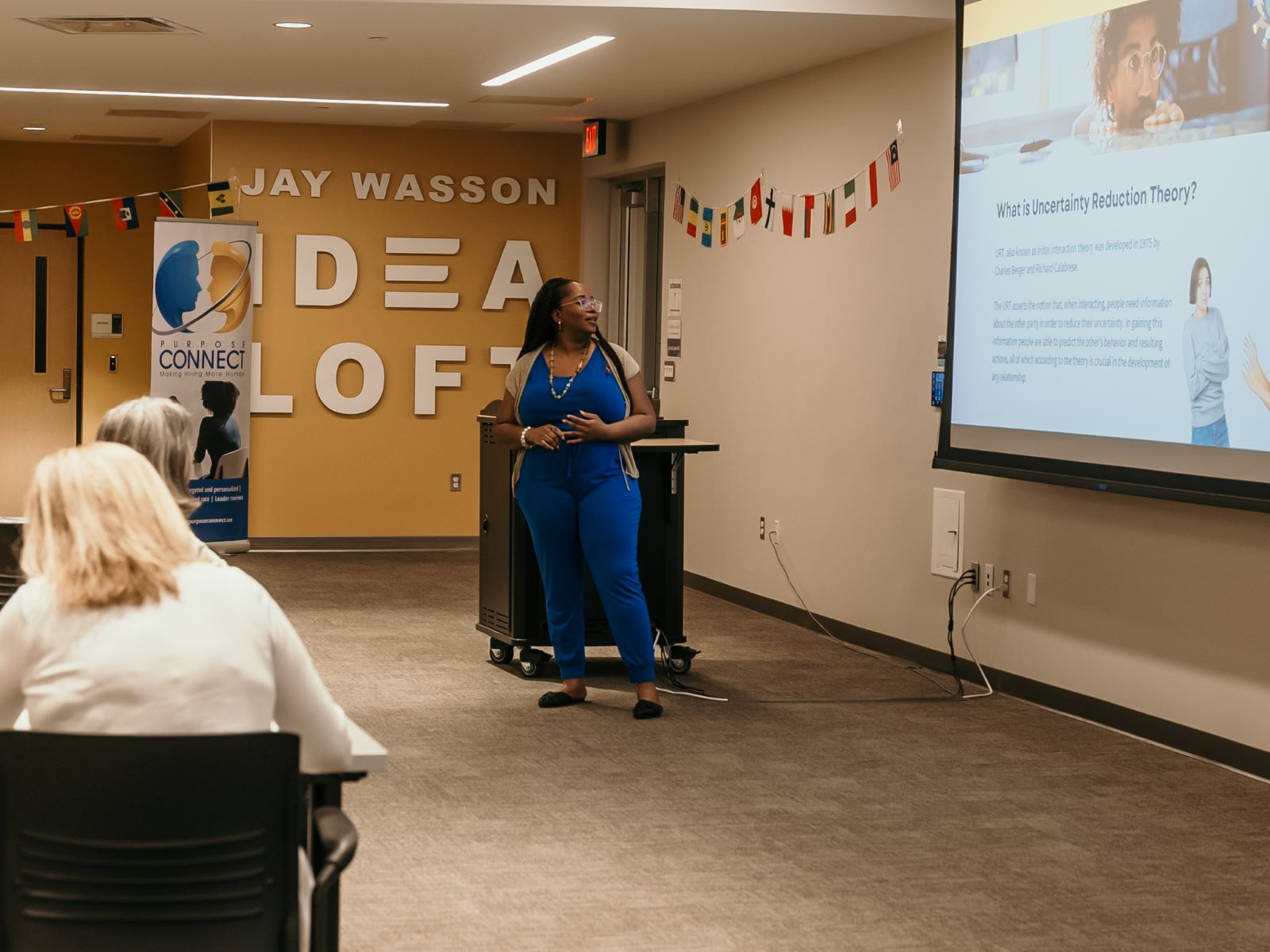
Bowman said the class and its resources have helped her better understand cultures where she hopes to recruit talent from for Cintas, a Fortune 500 company with 45,000 employees.
“When I'm recruiting, I want to be connected with all groups of people,” Bowman said, adding that cultural competency extends beyond gender and race. It includes LGTQB+ and groups like veterans and people with disabilities.
Odunewu added pieces to the training since it began as needs emerged. The LGTBQ+ section takes about an hour, as does the section on people with disabilities. Then there is an hour on gender equality and another half hour on dealing with Generation Z, Odunewu said.
Yoon found the training so helpful that she spurred several other employees of the Springfield-Greene County Health Department to take it. She said the class can help her employees that work directly with patients.
“We try to tie [cultural competency] to health care and just providing excellent customer service, no matter who they are,” Yoon said.
Understanding a patient's culture is critical to giving proficient health care, she said.
“You need to understand their background and maybe some of their barriers. Or understand your own biases to see how that may impact your care and how you interact with them.”
Marah Schreiber, director of human resources at the ARC of the Ozarks, has implemented lessons from the class into her work helping people with disabilities, she said. She has encouraged her own team to explore some cultural differences that Odunewu highlighted, even discussing the Cultural Atlas with colleagues.
One cultural difference that Schreiber found interesting was the different relationships to time. In America, promptness is the norm, with tardiness in a professional setting often frowned upon. But in other cultures, being an hour late is being on time, Schreiber said.
But it was Odunewu's own experiences that impacted Schreiber the most.
“I think what I found the most compelling was [Odunewu] just sharing her own experience of being Nigerian and coming over here and the differences and the things she had to adjust to,” Schreiber said.
From Nigeria to Springfield
Odunewu oversees the racial and ethnic piece of the class herself, and brings her own experience of immigrating from Nigeria.
Odunewu moved to the U.S. in 2008 from the country in West Africa, where she spent 20 years before winning an American visa lottery, granting her a green card and a clear path to U.S. citizenship. She first moved to Maryland because she had family there and began a biomedical engineering degree, planning to enter medical school after.
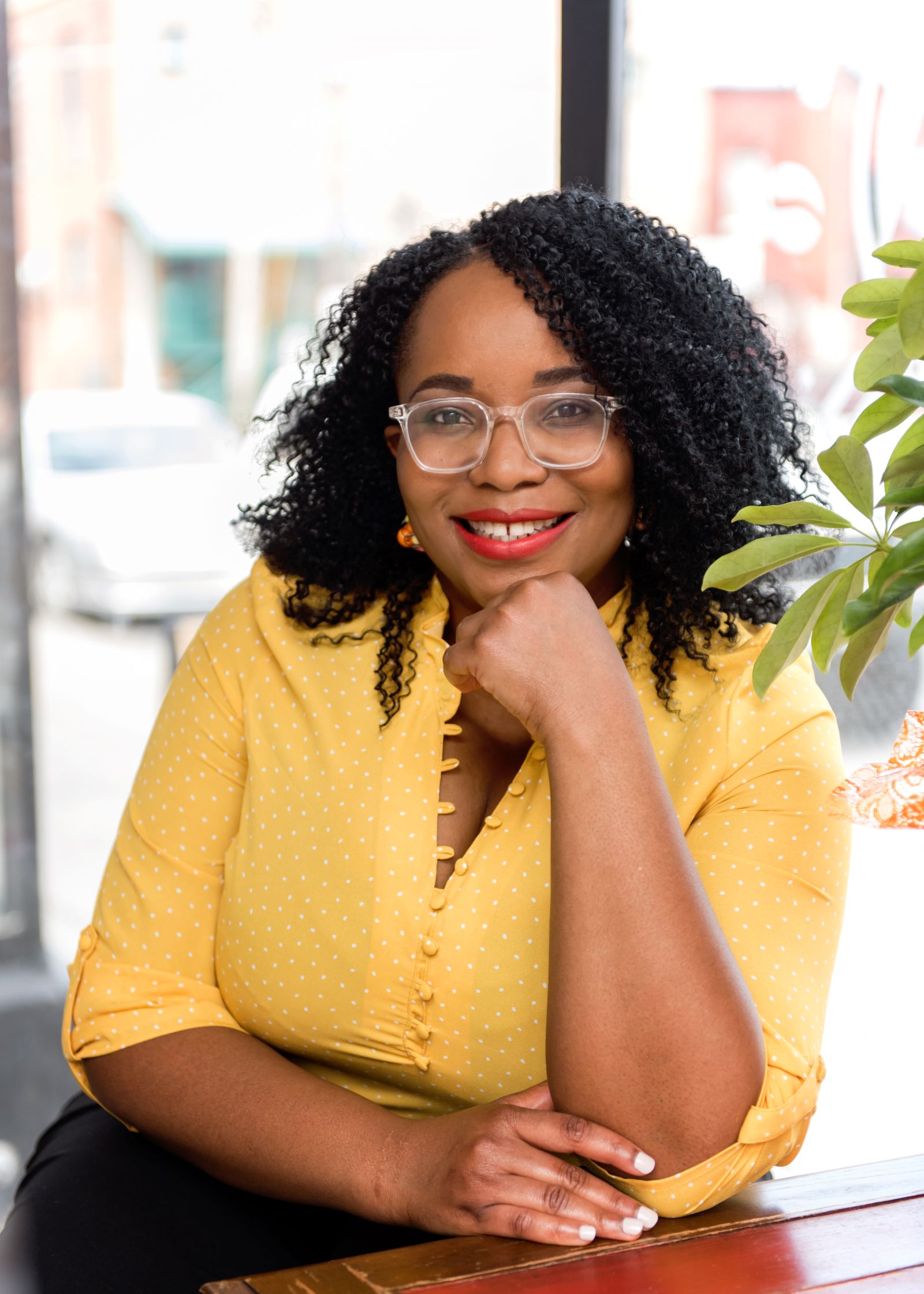
Her own life experiences pushed her along the path of becoming a “medical missionary,” Odunewu said. Her main goal was to provide health care to those who could not afford it. When she was young and in Nigeria, a friend died when he was refused health care because his mother could not afford treatment.
“I could not wrap my mind around it; there's no reason people should lose their lives just because they cannot pay,” Odunewu said. “That singular event defined the rest of my life.”
Once she was in school, she found a passion for health care communications and decided to upend her comfortable life in Maryland to attend Missouri State University, one of five schools in the nation that offered the major.
In 2013, she moved to Springfield and set down a completely different life path.
Her college experience as a Nigerian immigrant in Springfield as well as her managerial role she took after school at Cox Health, where cultural differences caused friction in the workplace, made her realize something unique about herself.
“I began to discover that I had a heart for just helping people discover themselves, so that they can position themselves in place where they can be more effective” in life, Odunewu said.
This new passion spawned DAMI, LLC, the consultation company Odunewu founded five years ago that encompasses multiple businesses aimed at bettering the workplace by embracing diverse cultures, like The Ultimate Party.
She also started PurposeConnect, a hiring software that eliminates the typical resume and allows employers to connect straight to diverse applicants through a job seeker qualifying algorithm, according to the Springfield Area Chamber of Commerce. The beta testing was completed last year and the platform will launch at the end of October, Odunewu said.
The more you know, the better
All of DAMI, LLC is fundamentally rooted in uncertainty reduction theory, Odunewu said, which revolves around the premise that people need information about others in order to reduce their uncertainty around those people.
Odundewu aims to get as much information about a person's culture out in the open so people can start to form those meaningful working relations. Only then can deep, significant human relationships develop, she said. And these significant relations in a workforce elicits its best work.
A section of the cultural competency class is a “deep dive into that theory and how it impacts our ability to develop working relations,” Odunewu said. Again, role-playing plays a critical role in this section of the class.
“People fear what they don’t know, and [Odunewu's] all about really just helping people know more and understand different groups of people more,” Bauer of Keep Supply said.
Each person gets a script of a person from a specific country or region, including cultural norms like greetings. They then get paired and act out how those two cultures would interact.
“They end up working out the miscommunication that happens because they’re not aware where the other person is from,” Odunewu said. That exercise usually results in some awkward exchanges for participants, which often present the best teaching opportunities, she said.
“For me, it just opened my eyes to I just have to be curious and critical of everything, so I even know there are questions to ask,” Schreiber of the ARC said.
$15,000 for a cultural eye-opener

Odunewu said she breaks down cost of the class by the organization type and size. For an individual to take the eight-hour class, it costs $1,500, according to the Chamber of Commerce. For groups of five people or less, it cost $5,000. And for an entire company or organization up to 35 people, the price jumps to $15,000.
Odunewu offers the class free to individuals from nonprofits and governmental institutions, she said. So far, about 75 percent of the total participants in the eight months the training has been offered have come from these types of organizations, she said.
In fact, some government organizations have sent multiple people to multiple classes, including the Springfield Greene-County Health Department. An Ultimate Party training course is offered every four to six weeks and has been ongoing since March, Odunewu said. The next class is Nov. 21.
Yoon of the Health Department believes everybody should take Odunewu's training, she said, adding “it will only benefit the community.”
“It’s a continual process, it’s not like any one training will deliver everything everyone needs to know” Yoon said, adding that the majority of Springfield is far away from cultural competency and still has great strides to make.
Odunewu's class certainly helps, Yoon said. “There aren’t that many trainings of this type being offered. And I have shared it. I’ve invited people to attend.”
Bowman of Cintas echoed Yoon: “Colleges should be teaching this, our schools should be teaching this,” Bowman said. “I think everybody should go through a class like this.
“It makes a workplace so much more engaging when you’re working with people who aren’t like you and you get to learn new things and learn how to communicate and get along with people who come from a different background.”

